
Sunday, January 31, 2010
Transition- E-Portfolio Entry

Thursday, January 28, 2010
Citizen Journalism and the Future of Journalism, Ricki Cundliffe

When it comes to "bloggers" and others who cover the news without receiving payment, I think that is 100% a personal choice. I don't understand any reason for mockery or ridicule directed towards these select people from critics, because these "bloggers" are clearly engaging in activities that they find enjoyable, interesting, and/or therapeutic. One of the best things about the Internet is being able to interact with people all around the world from the comfort of your own home; it is very beneficial to all to be able to contribute valuable knowledge to society via the Internet. Arianna Huffington states, "the critics of new media [who] clearly don't understand that technology has enabled millions of consumers to shift their focus from passive observation to active participation." In my opinion, Huffington has hit the nail on the head. With that being said, I think any sort of mockery by critics in this sense is unnecessary and inappropriate, because in essence, it does not affect these critics as individuals one bit.
"Some rewrite, at times without attribution, the news stories of expensive and distinguished journalists who invested days, weeks, or even months in their stories, all under the tattered veil of 'fair use,' " Rupert Murdoch said. "These people are not investing in journalism. They are feeding off the hard-earned efforts and investments of others...To be impolite, it's theft." In this case, I definitely agree with Murdoch. There is a big difference between contributing to the World Wide Web in comparison to cluttering it up with unnecessary repetition. If you really enjoy something that has been published by a fellow "blogger," there is absolutely nothing wrong with re-posting the piece while adding your own thoughts and ideas, AS LONG AS YOUR ATTRIBUTE THE ORIGINAL SOURCE! Search Engines are very advanced, and a simple background check will easily prove who the original composer was; it's doesn't help anyone to plagiarize, and it is especially offensive to those who initially posted their own views.
Overall, I understand there is a possibility of charging people to view the news online. It is more convenient to access than newspaper are, and there has always been a price on purchasing those. "In the new business model, we will be charging consumers for the news we provide on our Internet sites...The critics say people won't pay," Murdoch said. "I believe they will, but only if we give them something of good and useful value. Our customers are smart enough to know that you don't get something for nothing." I, too, share the belief that people are willing to pay for something convenient, beneficial, and original. On the other hand, I do not agree with putting a price tag on blog posting and similar sites (Facebook, Twitter, etc.). "Bloggers" should be able to take advantage of expressing themselves and their ideas online without having to cover costs. If these sites began charging their contributors, I believe the usage will decline dramatically, and the entire site will go to waste.
Note: Image from: http://images.google.com/images?hl=en&client=safari&rls=en&um=1&q=computer+cartoon&sa=N&start=0&ndsp=20
Wednesday, January 27, 2010
Journalism 2.0 E-Portfolio

As we are now in the age of digital literacy, experienced and respected journalists are finding themselves thrust into a whole new form of writing and investigating. They are experiencing a whole new world of media communication, which they have to learn.
One of the most prominent points in favor of digital journalism is the fact that information is accessible all around the world in an almost instantaneous manner. Another is that there is an opportunity for virtual collaboration with almost anyone and the news and the people that choose to report it. Anyone with a computer can be vocal and active with internet journalism. If you are displeased with the news or the way that it was reported you can instantly comment on it. Also, internet media could prove to be a lucrative business if advertising is used responsibly- it would have a low overhead. Journalists' travelling expenses will be nonexistent because travelling is unnecessary with the internet. Why send a journalist to cover a story in another country when there is a journalist that is living there that could get the story in a matter of minutes?
The negative points of internet journalism are far more daunting than one might expect. There is a lack of accuracy and credibility when one is reading news on the internet. Research must be done to find out which sites provide news that is correct and trustworthy. There is also a lack of editing, which leads to greater chances of slander or libel within news stories. Also, there is no set of ethical rules for citizen journalists like there is for journalists. This could prove difficult when trying to vie for attention with news stories that citizen journalists can write in a “juicier” manner, perhaps with information that as a responsible journalist, we cannot provide.
I believe that now the days of “selling” the news are over, and what people will pay for is accuracy, trustworthiness, and respectability because news is simply too easy to obtain at this point.
Print and daily television are becoming aged methods of gaining news information. They are less intriguing when one may access information minute-by-minute via the web at a computer all day at work. When this is a regular occurrence, how do you capture the public attention with old information? The only defense is to make it trustworthy.
It is in my opinion that when the seniors of our generation pass, so will the archaic methods of news transmission. I believe that they exist now only as a method of informing those who do not have the technological skills to access information the digital way.
Not only hard news, but comics, horoscopes, community events and job searches can all be found on the internet now rather than in a newspaper.
In a way, trained journalists are much more equipped to write for the web because they must be well versed in many topics; health, court, technology, etc. whereas citizen journalists seem to have only one or two areas of expertise that they cover. Trained journalists can seguey from topic to topic. Also, student journalists that are graduating in this age of digital information are trained to write for the internet, radio, print and television and to take their own news quality photos. We are more equipt to provide news to the public that will be valuable. We are the “credible bloggers.”
I believe it is important for us as journalists to grow with technology and to create a niche for ourselves in this ever-changing industry. As Hunter S. Thompson said, we must, “Buy the ticket, take the ride.”
Image from http://images.dailyme.com/websites/corporate/26newsie.jpg
Crap Detection, Megan Perras

I believe that this article was current as far as technology was concerned. There was a lot of references made to the past technologies as well, which I think aided in making the point that the evolution of information systems creates a need for an evolving information filter. It references twitter and other social media sites which are current and popular media tools. All of the links seem to be useful and working as well.
Reliability
The information provided is cautionary advice, and is expressed as such, which creates an opinion-based reliability. The opinion is backed up with facts and examples which can be checked. The article doesn’t need to be balanced because it is expressed as a personal opinion, but it has a large amount of sites which are helpful and truthful in checking information which you find on the internet. There are links for almost every topic the author discusses.
Authority
Howard Rheingold gives his email, so you have a chance to respond, which gives the reader the authority to create a dialogue. Also, there are areas for the reader to comment and participate in the discussion with others who have explored this topic. The author has a full biography with references and is an author, editor and professor. This creates an aura of credibility surrounding the article. The overall goal of the article seems to be to teach and inform the public about misinformation online and create a forum for discussion.
Purpose/ Point of View
Rheingold gives both fact and opinion within the article. The information is not biased, but seems to be a realistic opinion on how one should approach internet research. The author is selling an idea, but not for personal gain.
Tuesday, January 26, 2010
Fact-Checking Megan Perras

http://www.edmontonjournal.com/news/Alberta+Education+investigates+rumours+exam+cheating/2486975/story.html
After fact-checking this story, as far as I know it is accurate. The story is about an allegation of cheating, and is difficult to prove true or false. Zoe Cooper is the Public Affairs Officer at the Government of Alberta, and she is called the “department spokeswoman” in the article. Cory Sinclair is an Edmonton Public Schools spokesman. Both names are spelt correctly in the article. I could not find a way to verify the exact number of students that wrote the exam. Also, I could not find any news articles that spoke about the 2001 cheating incident in St.Albert.
Accuracy is imperative in journalism, because it creates a trust and respect relationship between the writer and the reader. If a writer uses inappropriate or rudimentary grammar, then they lead the reader to believe that they are inappropriate or rudimentary, not to mention unintelligent. The consequence to that is then the reader no longer respects what they write, no matter how true or worthy their opinion.
Backchecking, Jesse Snyder
FACT CZECHIN' - Devon Bowie

Full Article Here
By Randy Boswell, Canwest News Service January 26, 2010 3:55 PM
This article taken from the Journal's site seems to be accurate and have no glaring errors. Thumbs up.
Accuracy is an important thing. It is, for one thing, central to one's credibility, and thus career. Additionally, to be inaccurate would go against the very ideal of journalism. Thus, you better check yourself, lest truly, you wreck yourself.
Fact-Checking, Terra

When I googled Sharon Avery's name, I was able to see that she did indeed work for UNICEF.
It is extremely important to be accurate and thorough because it helps with the writer's credibility. It is important for a writer to maintain a reputation of being accurate so that he/she will continue to have people who read his/her articles. People do not want to read articles that aren't accurate and many people don't have the time to fact-check every article they read. If they can simply trust what a writer writes it makes it more convenient for the readers in the future.
Fact Checking, Rob Smethurst
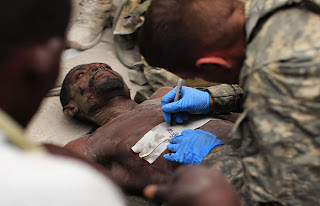 In the article from the Edmonton Journal, posted today, of a man rescued in Haiti, has to checked out as far as the checklist goes. It also touches on aid that is coming into the country as well as efforts to help clear the rubble. The reporter writes that helping out are several thousands of US troops, yet does not mention that there are many people concerned that such an American presence is a subtle takeover. Considering that this is supposed to be a good news story, I can understand why. Maybe the reporter could just do another story on the US presence in Haiti. They are armed really well....
In the article from the Edmonton Journal, posted today, of a man rescued in Haiti, has to checked out as far as the checklist goes. It also touches on aid that is coming into the country as well as efforts to help clear the rubble. The reporter writes that helping out are several thousands of US troops, yet does not mention that there are many people concerned that such an American presence is a subtle takeover. Considering that this is supposed to be a good news story, I can understand why. Maybe the reporter could just do another story on the US presence in Haiti. They are armed really well.... Fact checking is so important in journalism it should be a basic move and secound nature to everyone in the industry, seeing as presenting the truth is the name of the game.
Fact Checking, Claire Theobald

Fact Checking, Pamela Di Pinto

- The numbers in reference to the quake are consistent with what has been reported thus far.
- Names, titles, and locations appear to be in order.
- Sources are well attributed.
- Spelling and grammar were up-to-par with what I expected as a reader.
However, despite all of this, there were no external links within the story that allow the reader to physically confirm the above mentioned information. Including such links would have strengthened this story's accuracy and reliability. As well, there was no specific author mentioned. The byline simply read Agence France-Presse. Interesting...
Fact-Checking, Ricki Cundliffe

Ask sources to spell name & title: PROBLEM: "Inukshuks" is the English spelling. "Inuksuks" is the proper spelling.
Record or transcribe interviews: ---
Verify claims with reliable sources: CHECK!
Save links and other research: CHECK!
Ask sources what other reports got wrong: No other reports.
Names: CHECK!
Titles (people, books etc.): CHECK!
Locations: CHECK!
Compare quotes to notes/recording: CHECK!
Quote Attribution: CHECK!
Definitions: CHECK!
URLs: ---
Spelling & Grammar: PROBLEM: "Inukshuks" is the English spelling. "Inuksuks" is the proper spelling.
Spellchecker Errors: ---
Note: Image from: http://www.ocanadagear.com/graphics/inukshuk-build1.jpg
Fact-Checking, Jayme
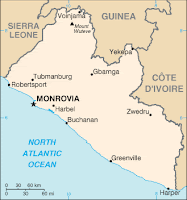 This article, written by Dave Cooper, has statistics listed for flights from Canada to the United States. The problem is he does not attribute the source of this data. In order for this information to be able to be fact-checked he would have to list where he is receiving the numbers from. He lists his email, so contacting to ask about this glaring omission is possible, but the average reader will not do this. Unfortunately, he does not attribute any findings throughout the whole article. I would say this story fails the accuracy test simply because I am unsure of where he is getting his information. He also mentions a new non-stop flight to Liberia, which does not make any sense to me. A direct flight from Edmonton to Liberia?
This article, written by Dave Cooper, has statistics listed for flights from Canada to the United States. The problem is he does not attribute the source of this data. In order for this information to be able to be fact-checked he would have to list where he is receiving the numbers from. He lists his email, so contacting to ask about this glaring omission is possible, but the average reader will not do this. Unfortunately, he does not attribute any findings throughout the whole article. I would say this story fails the accuracy test simply because I am unsure of where he is getting his information. He also mentions a new non-stop flight to Liberia, which does not make any sense to me. A direct flight from Edmonton to Liberia?Without accurate referencing a person has to assume the article is not based on fact. It is important to check whether what you are reading is fact without blindly assuming it is correct. The internet has many unreliable writers on it and fact-checking is more important than it has ever been.
Fact Checking, Created Through Hard Work and Sweat Done by Steven Wagers
 So, I am here to try my hand at being an editor for a news story that is currently online, I mean what could possibly go wrong?
So, I am here to try my hand at being an editor for a news story that is currently online, I mean what could possibly go wrong? Fact-Checking, Jennifer Carbert

Crap Detection, Aden Cruz

The information he provides is substantiated by links to tools and resources.
The article is also relatively current, having been posted on June 30, 2009.
Notes
Image from: http://www.leadminingmuseum.co.uk
CRAP Detection, Kris Hoyt
C- Currency- The article was written on June 30, 2009. That means that, on the day of this writing, the article is four days from being seven months old. This means that the article is not very current. However, the topic, which is about reliable sources on the internet, does not age quickly, especially with the methods mentioned in the article, which the author managed to apply to his sources for over ten years, as stated by Rheingold.
R-Reliability-The article is about online research and how one can verify the online sources. This article is filled with links. At nearly every point in which the article references an outside source, there is a link to the outside source, and usually more. With the ability to check where Rheingold got his information, we can get a good check of the articles reliability.
A-Authority- The article was written by Howard Rheingold, who looks around the internet for such things as reliability in facts recieved online. As this is the man's job, I think one can find the article to have come from a trusted source. Also, the article was posted on SF Gate, the home page of the San Fransisco Chronicle. As a newspaper, the site can also be seen as fairly trustworthy. There are a few advertisements, but they have little to nothing to do with the article, so it can be assumed that they were randomly chosen.
P-Purpose/Point of View- I found that the article had some opinion about it. He stated his opinion that most people do not have the necessary knowledge to check their facts. However, as stated previously, the article does have a fair deal of links, so most of the things stated in the article, mainly the methods of checking the facts, do have a basis in fact. The sole purpose of the article is to educate people on the risks of online searching and how to make sure they have the right information.

This Picture is from http://www.rheingold.com/howard/
Crap Detection 102, Kevin Penny

CRAP Detection - Devon Bowie

The article seems to follow the C.R.A.P. detection rules fairly well, except in a few ways. A full report follows.
Currency: No problem. Site has been updated recently, article is less than a year old, and it's current enough to be relevant.
Reliability: It's largely an opinion piece, but the information checks out. It's factual.
Authority: Though I've never heard of the author, he apparently was a professor. He also wrote the article for a newspaper that seems to be well enough known. His personal site is well designes, too. http://www.rheingold.com/
Also apparently he'll be reading this. Hi! Claire says sorry.
Purpose: It's partially opinion, and it's biased, but as an opinion piece, it's allowed to be. He doesn't seem to want to sell me anything.
CRAP Detection, Robert Smethurst

Crap Detection, Pamela Di Pinto

Crap Detection, Max Rausch
First off, does it have credibility? The article itself is posted on a reputable journalistic website, Home of the San Francisco Chronicle, with recent news stories adorning the home page. of course, the article is not a news story, but even an opinion piece needs a a certain degree of credibility to be featured on such a site.
Next, we see if the sources cited in the article are reliable. In fact, links are provided throughout the article so that the audience may verify this for themselves. This forthcoming style makes him easier to trust, and lets us know that, to paraphrase the man himself, he is not actually trying to pull one over on us. the presence of the links themselves would not be adequate if they did not lead to trustworthy sources, but Rheinegold has based his thoughts on insight from reliable and trusted sources from the Web.

Finally, we have to consider the point of view of the author himself. Does he have any ulterior motives besides informing us for the sake of doing so? His background as a teacher would seem to indicate that informing for its own sake is not outside his nature. Moreover, his message is one that has universal appeal-he is not advocating a political or idealogical perspective. He is merely informing us on how to protect ourselves when surfing the web.
Note: image from clipartof.com
Crap Detection, Claire Theobald
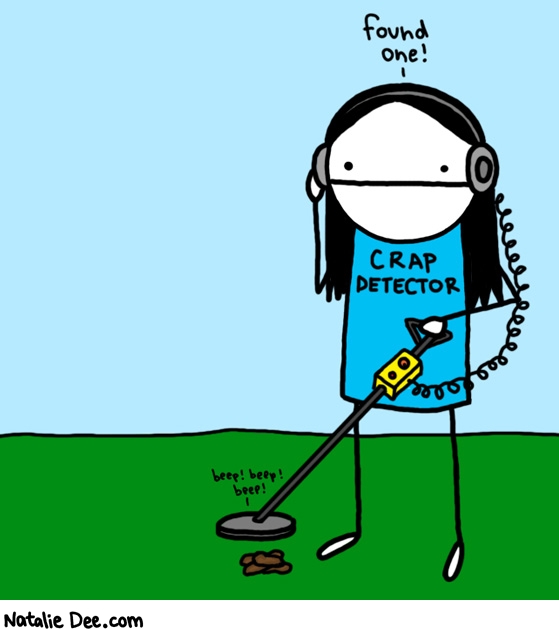
Crap Detection, From the Desk of Steven Wagers

CRAP Detection, Ricki Cundliffe

Crap Detection, Jayme
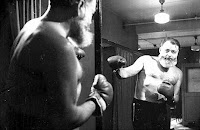 The fact that Howard lists his name and is not an anonymous poster adds credibility to his article on fact checking, he even lists an email to contact him at. The concept of CRAP detection in what you are reading is as relevant today as when Hemmingway first wrote it. With the amount of nonsense being put onto the internet it is extremely important that you make sure the 'facts' you are reading are fact. He links the appropriate websites and authorities whenever he is offering data, this adds to his credibility and gives you the ability to check that what he is writing is accurate. The article expresses his point of view clearly and he obviously had a purpose for writing it on his mind. This article passes the CRAP test in my books.
The fact that Howard lists his name and is not an anonymous poster adds credibility to his article on fact checking, he even lists an email to contact him at. The concept of CRAP detection in what you are reading is as relevant today as when Hemmingway first wrote it. With the amount of nonsense being put onto the internet it is extremely important that you make sure the 'facts' you are reading are fact. He links the appropriate websites and authorities whenever he is offering data, this adds to his credibility and gives you the ability to check that what he is writing is accurate. The article expresses his point of view clearly and he obviously had a purpose for writing it on his mind. This article passes the CRAP test in my books.CRAP Detection, Jennifer Carbert

Currency
The article is an article with fairly current information since it was posted on 30 June 2009. The article is relevant in saying that many people are willing to take information on the IInternet at face value, everything should be double checked and searched. There are comments at the bottom of the page that discuss this article as very valuable and that "[it] should be required reading". Comments like these suggest that people around the world are finding the article helpful and relevant to their lives today. The relevancy of the article also speaks to the currency of the topic. If the comments made January 8, 2009 say that the article should still be required reading obviously people still think this way. Based only on Currency and Relevancy we can determine this article to have passed the first half of the CRAP test.
Reliability
The article provides many a lot of good opinion information, but let us look into the reliablity of the author and the sources used in this article. The author, Howard Rheingold, has authority to write on the subject due to the fact that he is a professor at several universities in the communication and journalism programs. The man is very credible, however some of his links are not. His link to Canter and Siegel is to a wikipeadia source which is not very highly esteemed as a reliable source and wikipeadia itself says, "this biography of a living person does not cite any references or sources".
Authority
Rheingold, based on his credentials has great authority to speak on the topic of invetigating online sources since he teaches this very topic at various Universities. The story about teaching his daughter how to investiagte online sources also gives his authority to other parents as he portrays himself as a concerned parent.
Purpose
Based on the authors background and the tone of the article it is both opinon and fact. As a protective parent this is an opinion peiece based on how people use the internet. He cannot assume to know that everyone who uses search engines is oblivious to how to double check an online source as he does; however, he is right in saying that many people do not check the accuracy of the information they find online. In exploring his own opinion Rheingold checked many facts and wrote a very factual article based on his opinion. The point of the article is to inform and warn internet users how to double-check every page and every source they use.
Conclusion
In my opinion this article largely follows its own rules. The author is credible and has authority to be speaking on the subject. The information is current and timely and reflects almost universal truths. The point which could use some refinement would be in selecting better links, a link which goes to wikipeadia and does not source anything requiers a second look.
image from: http://www.cartoonstock.com/newscartoons/cartoonists/jdu/lowres/jdun425l.jpg
Crap Detection, Jesse Snyder

CRAP Detection, Terra
 This article is fairly current because it's still relavent today as the issue is still important today. People are able to comment on the article which helps it remain current as well. I think that the article is credible because according to the CRAP test, I can access information about the author if I please. He suggests trying to google the author and see what else he/she has had published. There are ways to contact Howard on his website as well as other articles and books he is a part of.
This article is fairly current because it's still relavent today as the issue is still important today. People are able to comment on the article which helps it remain current as well. I think that the article is credible because according to the CRAP test, I can access information about the author if I please. He suggests trying to google the author and see what else he/she has had published. There are ways to contact Howard on his website as well as other articles and books he is a part of.Lecture 4: Fundamentals of Accuracy
Activity 1:
http://www.sfgate.com/cgi-bin/blogs/rheingold/detail?entry_id=42805
Perform the “CRAP” test on Rheinghold’s article
Write a blog entry (not a comment) on your findings
Include an image that relates to your topic
Remember: remain professional and neutral in your writing style and tone
CRAP Test:
Currency –
- How recent is the information?
- How recently has the website been updated?
- Is it current enough for your topic?
- What kind of information is included in the resource?
- Is content of the resource primarily opinion? Is it balanced?
- Does the creator provide references or sources for data or quotations?
- Who is the creator or author?
- What are the credentials?
- Who is the publisher or sponsor?
- Are they reputable?
- What is the publisher’s interest (if any) in this information?
- Are there advertisements on the website?
- Is this fact or opinion?
- Is it biased?
- Is the creator/author trying to sell you something?
Examples of Common Mistakes
Names and titles - these go wrong more than anything else
Numbers and math – “Anytime journalists get their hands on numbers and math there’s a huge probability that things will go wrong” ~ Craig Silverman
Typos -You can blame spell check programs for some of these though it's best not to rely on these programs
Misquotes and misidentifications – “I’ve seen a lot of men become women, mothers become daughters" (Silverman). It can get really bad when identifications are mixed up and a crime is involved.
Activity 2:
Go online
Look for a factual or grammatical error in a local news publication
Add your finding (with a link to the original article) and correction as a comment to today’s lecture post
20 minutes
Checklists:
In a 2000 article for the British Medical Journal, James Reason (one of the world’s leading researchers of human error) emphasised that “it is often the best people who make the worst mistakes - error is not the monopoly of an unfortunate few.”
Examples of Checklists:
Detroit Free Press and the San Jose Mercury News
We Regret the Error - Accuracy Checklist:
Activity 3:
Find a news story in a local publication
Go on a fact-checking mission
Complete as many of the accuracy check-list points
Create a blog post
Include all bibliographic information of your chosen story
Include your analysis of accuracy errors and corrections
Embed an image appropriate to your topic
Write a short paragraph on the importance of accuracy in journalism
Homework:
Read Chapter 4
Note: Top image, "Fact or Crap," from Calendars.com.au.
Friday, January 22, 2010
Citizen Journalism and the Future of Journalism, Jesse Snyder
 Of all the recent advancements made in journalism, the ability for readers to instantly verify information is one of the most substantial. Unlike the traditional form of journalism where readers were expected to accept facts at face value, they are now able to locate information via the internet and instantly verify data. In doing this, readers are able to create a more two-way medium, where people are essentially taking part in journalism themselves. The website World Government Data allows England's public to instantly download government data in any realm of the news. Crime rates, environmental information and sports statistics are all available on a single website. This in a sense creates more accurate journalism that is essentially proofread not only by an editor, but potentially by the entire public. People are then more qualified to comment on stories and give feedback, causing a more conversational style of journalism to emerge.
Of all the recent advancements made in journalism, the ability for readers to instantly verify information is one of the most substantial. Unlike the traditional form of journalism where readers were expected to accept facts at face value, they are now able to locate information via the internet and instantly verify data. In doing this, readers are able to create a more two-way medium, where people are essentially taking part in journalism themselves. The website World Government Data allows England's public to instantly download government data in any realm of the news. Crime rates, environmental information and sports statistics are all available on a single website. This in a sense creates more accurate journalism that is essentially proofread not only by an editor, but potentially by the entire public. People are then more qualified to comment on stories and give feedback, causing a more conversational style of journalism to emerge.This conversational style of journalism is integral for bloggers, who otherwise have no editors, to back check and verify information. Without the ability for people to converse, bloggers are using their posts only as places to vent and give their opinion. In order for citizen journalists to be credible news sources, there must be verification from the public. Without open discussions occurring blogs become untrustworthy. But can the public actually be trusted to verify data? The Internet doesn't supply bloggers with angry bosses to break their knees if they step out of line, so how does one know which sites are written objectively?
It can also be noted that most popular bloggers earn credible reputations before they actually begin getting heavy traffic to their site. Most blogs aren't viewed by more than a handful of people, and don't display any links or data pertaining to the story. Regardless, blogs have been growing rapidly. This growth seems to make citizen journalists believe they are the modern and righteous journalists of today, attracting spite and hatred from the traditionalists who feel they are the way, the truth, and the light. It is an ongoing and treacherous battle; although, soon enough the relentlessness of technology will give everyone the ability to be journalists. With that said, there are times when citizen journalists are just as apt as paid journalists. Things like town hall meetings and novice hockey games are surely right up the alley of a retired high school teacher with a Nikon Coolpix camera.
The future likely holds a place for both citizen journalists and professional journalists, as there will always be certain stories that are impossible for bloggers to cover, and others that are just as easily covered by average citizens. It is important for citizen journalists to display the same objective and discussion-based reporting as the major media outlets in order to convey the news honestly. In the end, only someone with a known background will be looked toward for, say, insight on the war in Afghanistan or global politics.
Note: Image from Google Images.
Wednesday, January 20, 2010
Journalism 2.0: Benefit or Burden? Kevin Penny
Tuesday, January 19, 2010
The Changing Journalist, Shannon Findlay
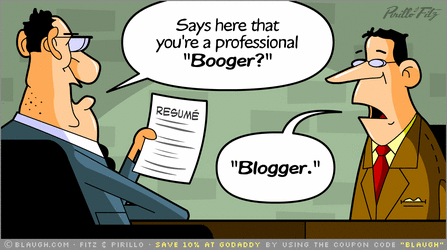
With the arrival of the Internet came widespread accessibility. Not just for the reader, but for the writers as well. No longer is the reporting of news left to the professionals; on the contrary, any person with access to a computer and Internet connection can make a mark on the world. This new group of self motivated news writers have been labelled 'citizen journalists'. At one time the bringing of news was an elite market, reserved for those trained in writing and research, but now, the door has been thrown wide open as anyone with something to say can let it be heard in the vast sea of knowledge that is the Internet.
With so much information to be found in one place it can create a difficult issue of trying to decipher the fact from the fiction. Does every blogger really know what they are talking about, or are they describing personal opinion and labelling it as fact? As Megan Perras said in her blog post on citizen journalism, "everyone wants a shot in the limelight." Bloggers are finding their limelight online by writing for all to see, but with so many different blogs to choose from, it is hard to create an audience of any significant size. Such a phenomenon can be compared the movie "The Incredibles", when the 'bad guy', Syndrome, plans to sell his electronics to the world so that anyone wishing for super powers can have them. He says, "I'll sell my inventions so that everyone can have powers. Everyone can be super! And when everyone's super-- no one will be." When everyone is a journalist, is journalism still a job? Or when everything is being reported on, is anything news?
Citizen journalism has its ups and downs, just the same as professional journalism. However, it is important to know what is news and what is someone's opinion. In the world of online, where any and all information is just a click away, it is the reader's job to read critically and be aware of what is worth reading. It easy to find the scribblings of a person vying for their turn in the limelight, but it is a much better idea to look harder and read what is true.
*Note: image from Biske.com
E-portfolio: Poor, poor pitiful journalists... Max Rausch
To as briefly but as accurately summarize the theory as possible, ambient journalism is a method of gathering and distributing information based around awareness systems. Alfred Hermida defines an awareness system as "a computer-mediated communication system intended to help people construct and maintain awareness of each others' activities, context, or status, even when participants are not co-located." The ideal of ambient journalism is rooted in the same truth as Journalism 2.0, that Internet tools like Facebook and Twitter are indispensable to the new age journalist, but expands upon it. No more will consumers be hanging on our broadcasts or printed stories as they once did: instead, they will call up the most recent information on any topic they desire practically at will, a few keystrokes aside. By taking advantage of networking tools (Facebook), micro-blogging (Twitter), and mobile technology, journalists spare audiences the struggle of finding information, instead allowing it to flow freely as a part of the audience's environment, hence the term "ambient".
So for the audience, life is only to get easier. For us, the journalists, life is bound to get even more complicated. Even Mr. Hermida acknowledges that the new methods "present challenges to the established practice of relying on the journalist as the filter of information," and openly acknowledges that the validity of information using such open mediums can be questionable. "What I am suggesting is that another approach is needed to unlock the potential of collective intelligence of (awareness systems like) Twitter." When the industry itself doesn't know the best approach, I can safely say they can't teach it to us in university.
The Importance of Being You, Katrine Sorensen

Since success is measured in the number of followers on Twitter or the number of friends on Facebook, it has become very important to have a distinct personality or controversial opinions to break through the digital wall.
Reality tv is an excellent media for broadcasting an exaggerated image of the people involved by creating a media personality. Paris Hilton or Nicole Ritchie are excellent examples of people that have created an image that is so entertaining, appealing or controversial that they have become famous for their, hopefully, exaggerated alter egos. The outrageous personalities who are the driving forces of reality tv raise the question: is reality tv reflective of reality? Does it give a fair and balanced representation of the characters of the people involved? These concerns can very well be transferred to online media. Are the online celebrities giving a fair and balanced account of the issues they are trying to raise attention to? Is controversy and biased views shortcuts to attention? Kevin Penny brings Fox News up in his blogpost about bias. Fox News is a news station that is infamous for its biased discussion and unjournalistic methods; however, it still has the most viewers in the states. Perhaps a biased and one-sided world simply easier to follow for the average viewer/reader?
Of course, new media can also be used for aspiring journalists to have their voices heard in a time where competition is only becoming fiercer; however, I think the discussion of a distinct online 'voice' is problematic when the most integral qualities of a journalist are fairness and objectivity. Perhaps the greatest challenge for citizen journalists or journalism students is to trust their own abilities, so they do not need to rely on fake eccentric personalities to become popular online.
Changing times, Jennifer Carbert
Today consumerism has changed. People no longer go to the street corner to pickup the newspaper, instead they go online and find the stories they want to read. Readers scan the material to see if there is anything relevant before actually reading the material. "In radio and television time is limited. In print journalism space is limited. But on the Internet there is essentially an unlimited amount of time and an unlimited amount of space. The limitation is the attention span of the Internet users," said Vinton G. Cerf in his article How the Internet is Changing the Concept of Journalism .The online world also lends itself to a more diverse media setting. Previously news could be found in either audio, video, or print. With the Internet and Journalism 2.0 all three of these factors can be combined to create a compelling story. CBC is a great Canadian example of a news agency which has adapted to online. CBC combines the text of the news, audio from the radio, and video from the television.
The Digital Era and Global Awareness







